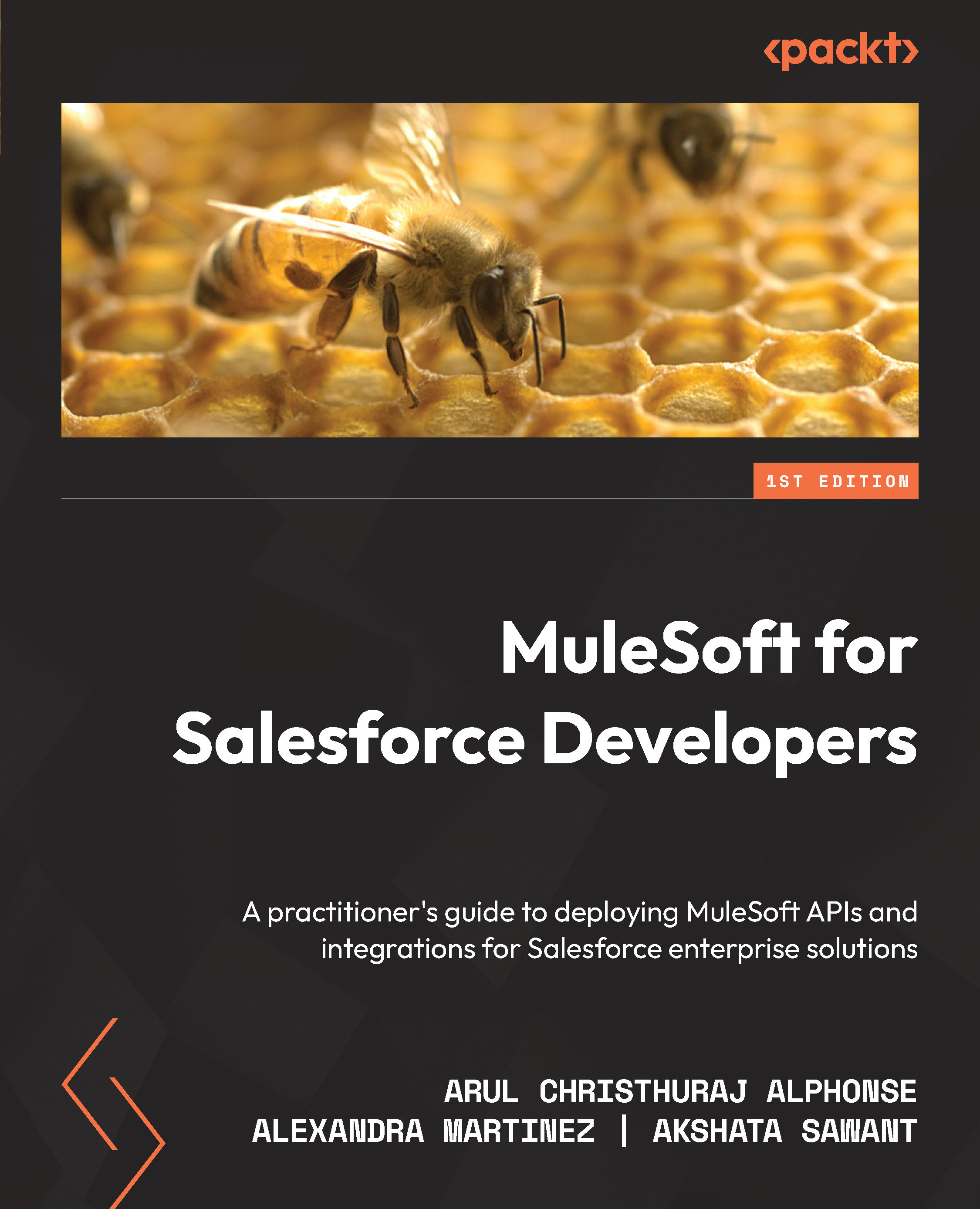Questions
Take a moment to answer the following questions to serve as a recap of what you just learned in this chapter:
- What are the different tools available for load/performance testing?
- What is MUnit?
- What is MUnit Test Recorder?
- When would we use Mock When operations in MUnit Tools?
- What are Sleep operations in MUnit Tools?
- In which path are MUnit test cases stored?
Answers
- There are many tools available in the market for load/performance testing. For example: JMeter, SoapUI, LoadRunner, and Gatling.
- MUnit is a unit testing framework for testing Mule applications.
- The MUnit Test Recorder is a tool to record inputs and outputs in a flow. It also creates automated test suites and those captured inputs and outputs can be used for your tests.
- Mock When is used to mock the data when the flow calls the external system. When unit testing, we cannot expect the external system to be available for our tests. Instead of calling the external...































































